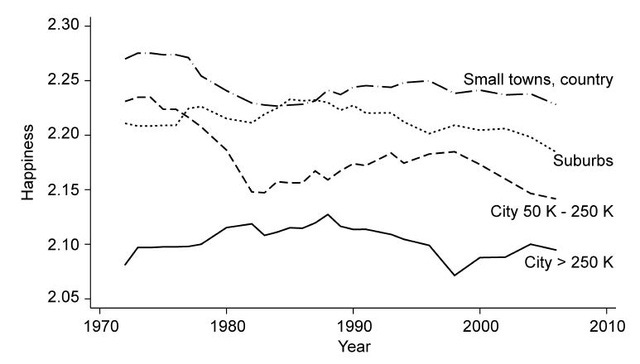Weekly Roundup: Correlation And Causation Edition

. Although the graph seems to be telling us that the more Mexican lemons there are in the US the fewer road deaths there are, the inescapable conclusion is that MEXICAN LEMONS KILL AMERICANS! What should we do about it? Should we import more Mexican lemons (the correlation tells us that this is what we should do)? Or should we ban Mexican lemons altogether? After all, if there are no Mexican lemons on the streets then they can’t kill any more Americans.
That's just one of the hilarious conclusions in this look at ridiculous correlations. There's a bit of irony here in the sense that while Mexican lemons certainly don't kill people, "undocumented" Mexican visitors can, and do, kill people with no penalty for having done so. There's also the fact that Thomas Friedman's "flat world" of globalism, having warmed up by killing my trees, is likely to kill quite a few Americans in the near future via the Wuhan coronavirus.
We could absolutely have stopped the coronavirus by closing our borders to Chinese people and products --- at least for a while, anyway --- but the World Health Organization takes its cues from China and therefore we've missed our chance. The spice must flow --- in this case, of course, "spice" is Apple products and Chinese consumer trash. It's also medicine. We globalized our supply of medicine away. There is no penicillin production in the United States anymore. Our heparin comes from China; a while ago, their prioritization of profit over quality killed 81 people and severely damaged 780 more. My advice for 2020: Don't get sick.
Back to this correlation/causation business. We've been eviscerating the value of an American university education nearly as fast as we've been closing American pharmaceutical plants --- and as a result, we now have at least twenty years' worth of college graduates who are literally unable to perform the most basic of logical or rational analysis on the statistics in front of them. Would you like an utterly horrifying example? I have one, of course.
This article makes a remarkable assertion: "Car dependence not only reduces our quality of life, it’s a crucial factor in America’s economic and political divisions." Is that true? Let's look at the evidence --- but first, let's look at the disclaimer.
As usual, I point out that correlation in no way infers causation, but simply points to associations between variables. (All of the correlations reported below are statistically significant.)
Really, that's where the article could stop, because everything which follows does it best to make you forget the disclaimer.
For one, the geography of car use tracks with income and wealth: Car-dependent places are considerably less affluent. Metros in which a higher share of people depend on their cars to get to work are poorer, and those where more people use transit or bike or walk to work are considerably more affluent.
This is an assertion of such breathtaking stupidity that I had to read it a few times. Either that, or its a perfect example of deliberately lying with statistics. Let's rephrase it and see if the lie becomes any more obvious:
Metro areas which are large enough to have public transit tend to be wealthier. Metro areas with higher residential population densities tend to be wealthier
Fuss with it a bit more:
The larger a metro area is, and the more successful it is, the wealthier the residents.
If you put this statement through the wringer a few times, you end up with:
Metros with higher real estate values tend to be wealthier
.
This is obvious. It has nothing to do with cars. The higher the property value is, the more expensive it is to live downtown, which in turn increases the density of housing, which in turn reduces the use of automobiles. You can buy a whole house in downtown Detroit or Dayton for $50k and park your car there. $50k won't get you a parking spot in Manhattan. I can rent a house in downtown Cleveland for $1000/month and park my car there. $1000 in Manhattan or Tokyo gets you a studio apartment and possibly a roommate.
Higher real estate value leads to higher density, which reduces car ownership. It also raises the cost of living, which requires more wealth to overcome.
The author tries again:
Car dependence is a feature of working-class metros, while metros with higher concentrations of knowledge workers and the creative class have much higher shares of people who use transit or walk or bike to work... It is well-known that Trump took the presidency by winning smaller and medium-sized places and rural areas, whereas Hillary Clinton took America’s largest, densest, and most productive areas.
That phrase "most productive areas" sets my teeth on edge. Productive of what, exactly? Not food, not machined products, not automobiles. Not medicine, not furniture. If those "smaller... places and rural areas" disappeared beneath the water tomorrow, the country would starve. If that fate were to befall the "largest, densest, and most productive areas" instead, we'd have to... what? Go without Peak TV? Come up with new ways to use the Helvetica font? Produce our own pornography?
The "working class" need cars because much of their work can't be done in an office or at a Starbucks. The people who used to make the Boeing 737 before we outsourced the software to the highly productive knowledge workers of Bangalore --- those people all had to drive to work. The alternative would be for Boeing to build housing on-site. We used to have a lot of that in this country. Those places were called "company towns" and the employees were paid in "scrip" that didn't convert readily to cash. It was economic slavery.
Let's take a look at another correlation:

This is a compilation of multiple surveys on generic happiness from 1972 to 2008. It shows that happiness correlates negatively with urban density, which happens to correlate negatively with car ownership, so there you go. If you want to be happy, get a car. Simple as that, right?
It's obviously not that simple. Yet the author of our original piece appears unable to understand that. Let's take a look at his bio:
Richard Florida is a co-founder and editor at large of CityLab and a senior editor at The Atlantic. He is a university professor in the University of Toronto’s School of Cities and Rotman School of Management, and a distinguished fellow at New York University’s Schack Institute of Real Estate and visiting fellow at Florida International University.
Well, this explains it. He's a "professor" and a "distinguished fellow" of academic "disciplines" with no discipline whatsoever. I cannot imagine it takes a lot of brilliance to be a distinguished fellow of a real-estate school. He has no bona fides beyond the mostly imaginary, which is why he can't recognize patterns which are obvious to most of my readers. If we restored a more rigorous curriculum in our universities, we would produce fewer bubbleheads. Don't hold your breath for that to happen. If you want to read some original and perceptive thinking on the city from someone who can see a larger pattern than what's on their FitBit, read Sultan Knish or something.
In the meantime, expect the Twitterati and the paid pimps of Friedman's Flat World to produce a lot of "umbrellas cause rain" poppycock. If it is almost unbearably depressing to see people who believe this stuff, take some heart: you're probably not among them. Better watch out for those Mexican lemons just in case.
* * *
For Hagerty this week, I wrote about big cars and risky car-sharing schemes. Did you know that the prevalence of car-sharing schemes correlates directly with the amount of human feces on the streets of any given city? It's true!

